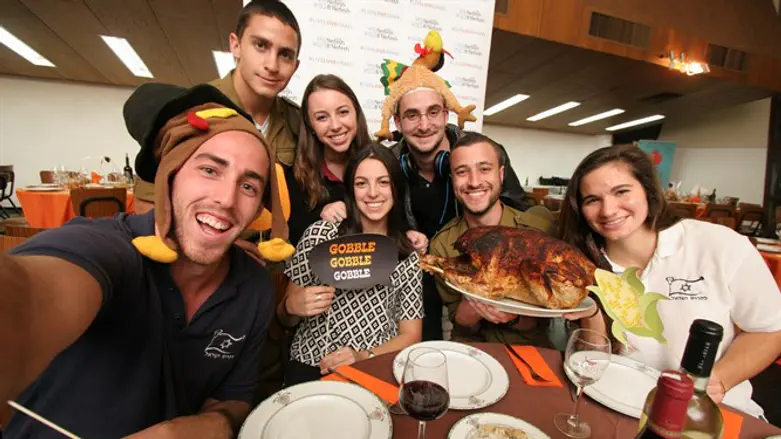
I was born into a modern American religious family on my father's side. I was especially proud to be a fourth-generation American Jew. I played a great game of baseball, enjoyed reading the Sunday funnies and celebrated American holidays.
My mother's family was the complete opposite. They all came from Europe and had no appreciation for baseball or any American pastimes.
Growing up in the '50s I went to a small cheder, a Jewish school where Torah studies took primary place. Almost all of my classmates were children of refugees.
One year I was introduced to a very strict, no-nonsense Jewish teacher - we called him "rebbe". This rebbe had very little patience for me, as I was very different from his European students. I was an American - a Yankee boy.
According to my rebbe's thinking, all American customs were taboo. They were considered "traif," non-kosher. Easter, Halloween, Thanksgiving and the Fourth of July were all jumbled into one big no-no. They were American and were out of bounds!
He taught that a biblical law forbids the Jewish nation to emulate the ways of other nations. He would quote the biblical verse Leviticus 18:3: "Neither shall ye walk in their statutes; do not follow their social customs," known in Hebrew as "chukot hagoyim."
However, not all Jews (and Orthodox rabbis) think that everything non-Jews do is in that category, as we shall see below.
A week before Thanksgiving my father called up my European grandparents and told them that he had received an 18 pound turkey from his synagogue's caterer. This was a gift to our large family for Thanksgiving. On Thursday we would have a Thanksgiving repast.
That Monday the rebbe made a speech. "Thanksgiving is forbidden. It is a pagan holiday. No Jewish boy is allowed to eat turkey for Thanksgiving."
Now I was in trouble. I thought that if I ate turkey my teeth would fall out. What would I do? I told my rebbe about the early Indians and the first Thanksgiving. I thought he would realize that Thanksgiving could be considered a good deed for both Jews and Gentiles. I tried to tell him about the friendly Indians; how they saved the starving Pilgrims; that the Thanksgiving meal reminds us of the foods the Indians showed the settlers and it taught them how to survive through the rough winters in the new world. This was a mitzvah, a good deed, to share and give thanks to G‑d.
"Yingele (sonny boy), I told you we don't celebrate these holidays. It is forbidden to even listen to your bubbemeises (tall tales)."
That night I told my dad that I wouldn't participate in a pagan holiday. "It's against the Bible," I said. he flew into a rage. I thought he was going to clobber me.
"You are an American, a fourth generation American. Be happy that you have a country that believes in G‑d. If anything, Thanksgiving is a Jewish idea." (The Pilgrims, after all, considered it the equivalent of Sukkot) He told my mother that if this continued, he would take me out of that cheder, the Jewish school.
For the next few years my father bought a large turkey for Thanksgiving and we had two turkey meals: one on the American Thanksgiving and one on the following Shabbos. We now celebrated Thanksgiving on the Jewish holy day of Sabbath.
I thought that my dad had a point. Thanksgiving, indeed, was a holiday that fit into the Jewish idea of remembering G‑d's goodness in providing us with our needs. Thus, we could have Thanksgiving every Sabbath.
I don't remember if Thanksgiving on Thursday became a kosher holiday in cheder, but we solved our family dilemma.
Years later, I read something that solved it once and for all for me.
On Oct. 3, 1863 Abraham Lincoln signed the original Thanksgiving Proclamation. In it he stated, "We have been the recipients of the choicest bounties of heaven; we have been preserved these many years in peace and prosperity; we have grown in numbers, wealth and power as no other nation has ever grown.
"But we have forgotten G‑d. We have forgotten the gracious hand which preserved us in peace and multiplied and enriched and strengthened us, and we have vainly imagined, in the deceitfulness of our hearts, that all these blessings were produced by some superior wisdom and virtue of our own. Intoxicated with unbroken success, we have become too self-sufficient to feel the necessity of redeeming and preserving grace, too proud to pray to the G‑d that made us.
"It has seemed to me fit and proper that G‑d should be solemnly, reverently and gratefully acknowledged, as with one heart and one voice, by the whole American people. I do, therefore, invite my fellow citizens in every part of the United States, and also those who are at sea and those who are sojourning in foreign lands, to set apart and observe the last Thursday of November as a day of Thanksgiving and praise to our beneficent Father who dwelleth in the heavens."
I think if my rebbe would have seen this wonderful proclamation, then he might have joined us in prayer at the Thanksgiving meal.